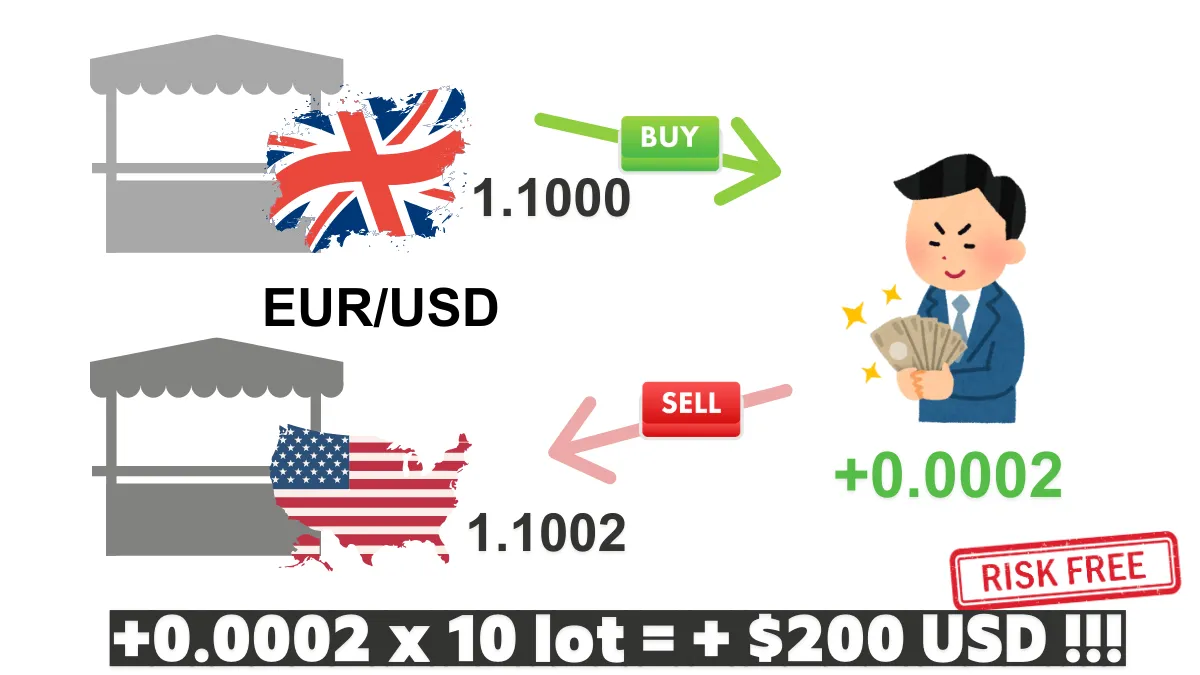Forex News Trading Unveiled: A Quick Profit Shortcut or a High-Risk Trap?
You may have noticed or heard that when important economic data (such as the US Non-Farm Payroll report) or major political events occur, forex market prices often experience sharp and significant fluctuations within a short period.Some traders attempt to capitalize on these news-driven rapid movements to make profits, a practice known as "News Trading".
Catching large price swings within minutes or even seconds sounds like a great opportunity to make quick money, right?
This potential for huge gains indeed attracts some traders.
However, news trading is also one of the most dangerous and challenging areas in the forex market, especially for inexperienced and unprepared beginners—it is more like a high-risk trap.
This article will explain what news trading is, why it is so appealing, but more importantly, what huge risks it hides and why beginners should be extremely cautious.
1. What is News Trading?
News trading refers to a strategy that attempts to profit by trading during periods of intense market volatility around the release of major scheduled economic data or unexpected significant news events.The trader’s goal is to predict (or quickly react to) the market’s directional response to the news and capture profits from the resulting large price swings within a short time.
2. Which News Events Are Most Watched?
Not all news causes huge market waves.News traders typically focus on events that have a significant impact on economic outlook and monetary policy expectations.
As mentioned in fundamental analysis, you need to closely monitor the Economic Calendar (Economic Calendar), which forecasts the timing of these important events:
- Interest rate decisions and statements from central banks worldwide
- Important inflation data (such as CPI, PPI)
- Key employment reports (such as the US Non-Farm Payroll NFP, unemployment rate)
- Gross Domestic Product (GDP) reports
- Major political election results and speeches by key officials (e.g., central bank governors)
- Unexpected major geopolitical events or natural disasters
3. The Huge Temptation of News Trading: Opportunities from Rapid Volatility
The main reason news trading is attractive is the explosive market moves it can generate.Within minutes after a major news release, a currency pair’s price can jump dozens or even hundreds of pips instantly.
For traders, this means there is a "possibility" of making huge profits in a very short time.
This potential for quick wealth is an irresistible temptation for many.
4. Extremely High Risks: Why Should Beginners Be Extremely Cautious?
However, behind the temptation lies risks far beyond normal trading hours.Beginners must clearly understand the following points before attempting news trading:
- Extreme Price Volatility: News can cause prices to swing violently in any direction instantly, often with large back-and-forth movements (Whipsaw). The direction you expect may reverse suddenly, causing rapid and significant losses. Your stop-loss orders may be triggered the moment the price touches them.
- Sharp Spread Widening: Within seconds to minutes around news releases, market liquidity drops sharply (everyone is watching or withdrawing orders). Brokers widen the Spread dramatically to hedge risk, sometimes several times or even tens of times the normal level. This greatly increases your trading costs, making it difficult to profit even if your directional call is correct.
- Severe Slippage Risk (Slippage): Due to rapid price changes and insufficient liquidity, your orders (including market orders, stop-loss, and take-profit orders) may not execute at your expected price. The actual execution price may be much worse than what you saw. This means your stop-loss may fail to protect you as intended, resulting in losses far exceeding expectations.
- Unpredictable Market Reactions:
- Expectations Already Priced In: Sometimes the market has already anticipated the news outcome, and prices have moved before the release, resulting in a muted reaction at the announcement.
- Key is the Expectation Gap: Market reactions often depend on the difference between the actual data and the widely expected figures, not just whether the data is good or bad.
- Reactions May Be Short-Lived or Reversed: Initial price shocks may quickly fade or even completely reverse direction.
- Reactions May Defy Logic: Sometimes market responses to news seem completely illogical from an economic perspective.
- Technical Failure Risks: During sudden surges in trading volume, trading platforms or broker servers may experience delays, freezes, or brief outages, preventing you from placing or closing orders in time.
Considering all these factors, the success rate of news trading is extremely low, and losses can occur suddenly and be very large.
5. How Do Traders Handle News? (For Understanding Only, Extremely High Risk)
Experienced traders may adopt some strategies to deal with news (all accompanied by high risk):- Pre-positioning: Placing orders before the news release based on their predictions. This is purely gambling and carries huge risks.
- Chasing Breakouts: Following a strong price breakout immediately after the news release. The risk is entering at a high or low point and facing high spreads and slippage.
- Trading Reversals: Waiting for the first wave of impact to end, judging if the market overreacted, then trading in the opposite direction. This requires strong market intuition and experience.
- Complete Avoidance: Usually the wisest choice for beginners. Avoid placing any orders during a period around major news releases (e.g., 15-30 minutes before and after), stay flat and observe, then look for trading opportunities based on technical patterns once volatility and spreads normalize.
6. Is News Trading Suitable for Beginners?
The answer is very clear: Absolutely Not!Reason: News trading demands lightning-fast reaction speed, strong psychological resilience under extreme pressure, tolerance for slippage and widened spreads, excellent risk management skills, and a deep understanding of market depth behavior—all of which beginners lack.
For beginners, attempting news trading is like learning to surf in the eye of a typhoon, with a very high probability of quickly losing capital.
Recommendation: It is strongly advised that all forex beginners completely avoid trading directly during major news releases during your learning and growth phase.
Learn to use the Economic Calendar to understand when the market may experience sharp volatility so you can prepare risk controls in advance (for example, if you have open positions, consider reducing them early or adjusting stop-losses appropriately), or choose to stay out and observe temporarily.
Your primary task should be to learn how to build and execute a reliable trading strategy in a normal, relatively stable market environment and master risk management.
Conclusion
News trading attempts to profit from the intense market volatility triggered by major economic or political events.Although it offers the potential for quick profits, the accompanying extreme volatility, sharply widened spreads, severe slippage risk, and unpredictable market reactions make it one of the highest-risk and most difficult areas in forex trading.
Due to these huge risks and the very high skill requirements for traders, news trading is extremely unsuitable for forex beginners.
Beginners should focus on building a solid foundation, learning risk management, and accumulating experience under relatively normal market conditions rather than chasing the fleeting excitement and uncertainty brought by news trading.
Hi, we are the Mr.Forex Research Team
Trading requires not just the right mindset, but also useful tools and insights. We focus on global broker reviews, trading system setups (MT4 / MT5, EA, VPS), and practical forex basics. We personally teach you to master the "operating manual" of financial markets, building a professional trading environment from scratch.
If you want to move from theory to practice:
1. Help share this article to let more traders see the truth.
2. Read more articles related to Forex Education.
Trading requires not just the right mindset, but also useful tools and insights. We focus on global broker reviews, trading system setups (MT4 / MT5, EA, VPS), and practical forex basics. We personally teach you to master the "operating manual" of financial markets, building a professional trading environment from scratch.
If you want to move from theory to practice:
1. Help share this article to let more traders see the truth.
2. Read more articles related to Forex Education.





